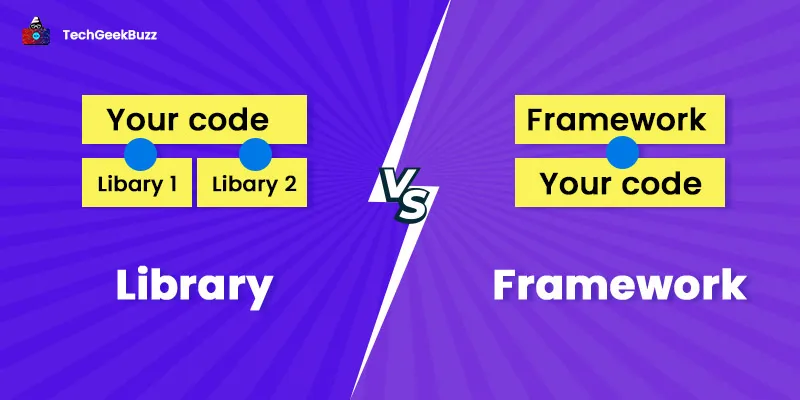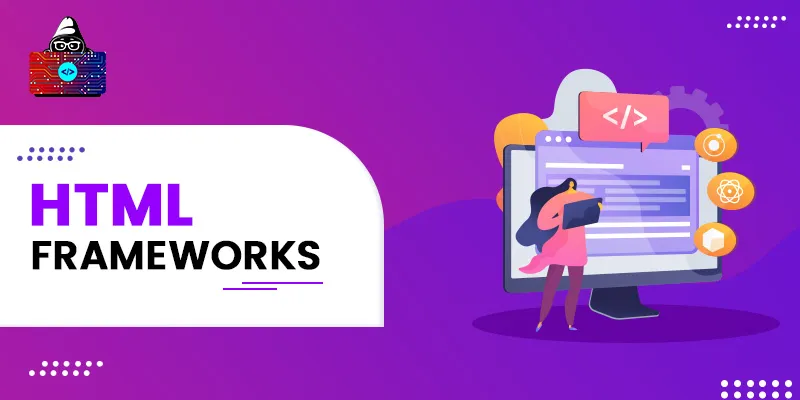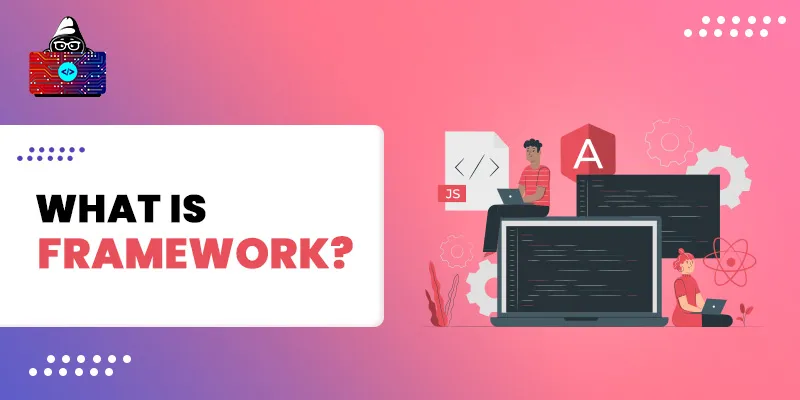Before developing an application, the development team has to first decide the programming language they need to use and then a library or framework. Both a library and framework facilitate the development process. However, many people often get confused between library and framework (library vs framework).
So, which one to choose and when? Let's know here and today. To draw the difference between a library and a framework, let us take a simple example of building a house. Developing a project using a library is something like building a house from scratch. You are free to choose the style of rooms and decorate them as per your preferences.
On the contrary, developing a project using a framework is something like buying an already constructed new house. Though you do not have to worry about building the house from scratch, you can’t style the rooms as per your choice. Many people think that a framework is a collection of libraries. However, this definition or statement is not accurate. Both a library and a framework are reusable pieces of code but have many differences.
Well, if you are not aware of the differences between libraries and frameworks, reading this framework vs library article would help you out. This article will help you understand the major differences between a library and a framework. Also, it will help you learn what exactly libraries and frameworks are, along with their upsides and downsides.
Library vs Framework: A Detailed Comparison
The primary difference between a library and a framework is the Inversion of Control (IoC) . Meaning that when you use a library in the source code, you can control the flow of the source code. You can call a library in code whenever and wherever required. However, it is not the case with a framework. When you use a framework for developing an application, it controls the flow of the application’s source code. A framework instructs you where and when to insert your code for additional functionality. Before nosediving into the framework vs library discussion, let's know about the definition, advantages, disadvantages, and reasons to use libraries and frameworks.
What is a Library?
In programming, a library is a collection of non-volatile resources that can be called or used in computer programs to perform specific operations. These non-volatile resources include configuration data, message templates, help data, documentation, classes, values, prewritten code or subroutines, and type specifications.
Alternatively, we can consider a library as a collection of compiled, tested, and reusable code that programmers can use to speed up the development process. It helps a developer to write code quickly and speeds up the compilation of your source code.
Libraries allow reusing the code that is already written by someone else. For instance, if you wish to write a high-level program and want to make system calls, you can use libraries rather than implementing those system calls again and again. Moreover, programmers can develop their own libraries instead of using the ones developed by others. Some typical examples of libraries include:
- NumPy , which is a Python library used to perform various mathematical operations on arrays.
- jQuery , which is a JavaScript library for HTML DOM tree traversal and manipulation.
Advantages of Using a Library
- A library provides ready-to-use code to perform specific tasks.
- A library improves the performance of your code during compile time. This is because code in a library is already compiled.
- Since it provides fully-functional code, a library accelerates the development process.
- You can modify the code of a library to make it fit right with your project.
- It lets you have control over the flow of code.
Disadvantages of Using a Library
- You cannot extend a library, i.e., you cannot add custom functionalities to a library. It is meant to perform specific operations or tasks.
- Using multiple libraries in code may affect the performance due to dependency conflicts.
- Sometimes, libraries are vulnerable to malicious attacks.
Why Use a Library?
The primary purpose of using a library is to avoid writing code repetitively to accomplish a specific task. Using a library means reusing the code written by other developers. Moreover, using a library saves a lot of time since it provides ready-to-use code.
What is a Framework?
A framework is a foundation or a base structure upon which software developers can build applications for particular platforms. It serves as a foundation for building applications, and developers do not have to build everything from scratch. It consists of reusable pieces of code written for specific tasks and enables developers to write their own code for custom functionality.
Like libraries, frameworks are also developed by other developers. They are associated with a specific programming language. Moreover, they let developers focus on high-level functionalities of the software while they take care of all low-level functionalities. We can think of a framework as a single package consisting of shared resources, such as image files, libraries, and reference documents. Developers can modify that package as per the needs of the project.
Advantages of Using a Framework
- Like libraries, frameworks also facilitate the development process since they act as the foundation for building applications.
- It provides all the shared resources, such as libraries, image files, compilers, APIs, and so on, in a single package.
- It enables developers to insert code for custom functionality without affecting the framework’s source code.
Disadvantages of Using a Framework
- You cannot modify the pre-written code of a framework.
- It is important to choose the right framework since it has a direct impact on the performance and scalability of your application.
- If you do not follow the prescribed guideline of a framework while developing an application, there are chances of security breaches.
Why Use a Framework?
We know that the software development process is complex and involves various activities, such as writing code, testing, designing, debugging , and so forth. Developers primarily focus on writing clean code and worry about syntax, declarations, garbage collection, and many other aspects associated with code development. A framework can handle all these aspects and lets developers focus on developing high-level functionality of the software.
Library vs Framework - A Head-to-Head Comparison Table
The following library vs framework table draws a detailed comparison between libraries and frameworks:
| Parameter | Library | Framework |
| Definition | A library is a collection of reusable, compiled, and tested code that facilitates application development. | A framework is a foundation upon which developers can build applications. |
| Inversion of Control (IoC) | With a library, developers can control the flow of their code. They can call a library in their programs whenever and wherever required. | A framework is responsible for controlling the flow of your code. |
| When to Use | You can use a library anytime and anywhere in your code. | A framework is to be used when starting the development of an application. |
| Collection | A library is a collection of helper functions, objects, classes, templates, modules, and so on. | A framework is a set of APIs, tools, libraries, support programs, compilers, and more. |
| Code Modification | You can modify the pre-written code of a library to meet your project requirements. | You cannot modify the pre-written code of a framework. However, you can insert additional code for custom functionality. |
| Performance | Building a library requires less code and hence, results in faster loading times, and excellent performance. | Developing a framework requires a lot of coding, which increases loading times and degrades performance. |
| Usage | You can use a library to perform a specific task, such as mathematical operations, implementing network protocols, and image manipulation. | You can use a framework to carry out multiple tasks, such as creating GUI systems and web application systems. |
| Extensibility | A library is not extensible. Instead, it is developed to perform a specific task. | A framework is extensible. You can insert custom code to add functionality without altering the framework’s source code. |
| Examples | NumPy, jQuery, TensorFlow, and Mockito are some popular libraries. | Django, Ruby on Rails, Flask, Laravel, and Angular are some well-known frameworks. |
Library vs Framework - Which One to Choose?
Both libraries and frameworks are used to facilitate the software development process. The major difference between a library and a framework is the Inversion of Control. When you use a library, you are responsible for controlling the flow of code, whereas, when using a framework, the framework controls the flow of code. When you want to accomplish a specific task, you can use a library.
On the other hand, you can use a framework to build fully-functional applications. Also, it is important to remember that a framework itself contains multiple libraries, along with other elements, such as APIs, compilers, tools, and other support programs.
Conclusion
So, this was all about the library vs framework discussion. Both libraries and frameworks are used to speed up the development process, and they promote code reusability. The primary difference between a library and a framework is the Inversion of Control (IoC). Also, you can use libraries whenever and wherever you want in the code.
On the other hand, you have to use a framework when you start developing an application. This article covers all the major differences between libraries and frameworks that you need to know while choosing one among them for your project.
People are also reading:





Leave a Comment on this Post